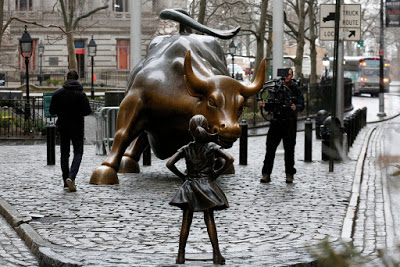The US dollar is paring yesterday’s gains as the market awaits the outcome of the well-telegraphed FOMC meeting.In recent weeks, the combination of data and official comments have swayed market, which had previously anticipated a hike in May or June.
A hike today is as nearly a foregone conclusion as these things can get. The idea of not wanting to surprise the market, which some Fed officials underscored, works both ways. It means market expectations are primed. It also means that when there is a nearly 100% chance discounted, not to deliver would also be a destabilizing surprise.

Investors will quickly look past a 25 bp hike. Indeed, the market will be looking for clues on the timing of the next one. There are two elements here. One is the dot plot. We expected the median and average to creep up, and suspect many may be underestimating the hawkishness of the regional presidents. The other element is the assessment of the balance of risks. Despite the prospect of slower Q1 growth (which is also consistent with the pattern since the financial crisis), the risks may be tilted higher going forward.
A Wall Street Journal survey found almost 70% of responding economist expect the next hike in June and 8.5% say July. A fifth expected the Fed to wait until September. Based on the current information set, we are inclined toward June. It is partly based on the understanding that gradual hikes rule out back-to-back meeting moves now. Our view is also informed by indications that the Fed’s leadership has grown more confident of the resilience of the US economy and is no longer looking for confirmation.Instead, we think the Fed has shifted to looking for opportunities to normalize policy. Also, expectation assumes European politics will not be significantly disruptive to the markets (which means no populist-nationalist victories).
Today’s Dutch election is the first test of this last point.Recent polls suggest the populist-nationalist PVV has waned in recent weeks. The Dutch themselves, and by and large, the investment community has never been particularly worried about the outcome. It is recognized that Wilders does express a current among the Dutch electorate, but it is not growing. The fragmented and decentralized nature of Dutch politics puts a premium on coalition building which serves to temper extreme views.











Leave A Comment